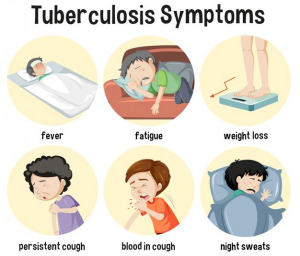I don’t know about you, but I love working up a good sweat. Whether that involves bursting into jumping jacks during an upbeat home workout, running down the bike trail with my Calvin Harris tunes cranked high, or simply soaking in the stillness of a toasty sauna session, there’s nothing like the feeling that you’re flushing out your stresses, one hard-earned bead at a time.
Unless, of course, you find yourself waking up in a good sweat instead of working it up intentionally.
According to the Sleep Foundation, about 41% of people report having recently experienced night sweats – that is, drenching sweats that soak through your sheets and disturb your sleep. Not surprisingly, most sufferers of this symptom are women; that’s because night sweats – also called sleep hyperhidrosis – are a common complaint during perimenopause or menopause, when your hormone levels plummet dramatically (fun, right?).
Are you experiencing night sweats?
Night sweats are caused by the fluctuation & decline of your hormones, mainly estrogen. You might have experienced them post-pregnancy or be experiencing them now in your 40s & 50s as you approach menopause.
Learn more: https://t.co/mXamWNBGrQ pic.twitter.com/ydqMIsjoET
— Evernow (@EvernowHealth) September 30, 2022
Together with hot flashes, night sweats are considered a cardinal symptom of menopause, and up to 80% of women experience them as they enter this transition period. But if this describes you, don’t sweat it (at least, not right now) – we’ve compiled a lengthy list of solutions for menopause symptoms that will help you bounce back in a breeze. (TL;DR: Wear a pair of cooling pajamas, curl up under a cooling blanket, or blast a high-powered electric fan).
Possible Underlying Causes
If you’re not anywhere near perimenopause or menopause, but you still suffer from night sweats, we have good news: you may be able to prevent them entirely if you address the underlying cause. While some people do experience primary hyperhidrosis – excessive sweating with no underlying cause – the condition is rare, affecting about 1.4% of the population. Chances are that if you’re sweating through your sheets, there’s something else going on with your body.
Normal or not, night sweats can be uncomfortable and disruptive to sleep. Here’s how to tell when they might be cause for concern. https://t.co/z7KHbxGcJJ
— NYT Health (@NYTHealth) July 28, 2022
Not sure what’s precipitating your perspiration? Still wondering, “Why do I sweat at night?” Here, experts uncover 7 reasons you may be suffering from night sweats, besides perimenopause and menopause.
1. You’re Feeling Anxious
Maybe you’re super-stressed about work, or you may even have an anxiety disorder. The thing about anxiety is that it manifests in ways that are not just mental but physical, even at night. “Anxiety can cause sweating both at night and during the day, since sweating is a part of our fight-or-flight response,” points out Zoe Ettinger, a certified sleep science coach and senior editor at Mattress Clarity. “You may notice that you wake up sweating after having a nightmare or panic attack at night.”
What to do: Meditation can work wonders for combating stress (and there are plenty of apps to get you started). But if your anxiety is severe or interfering with your daily life, it may be time to see a therapist.
2. You Have Diabetes
Night sweats can be caused by hypoglycemia, or low blood sugar, which is a common symptom of diabetes. “Those with diabetes can experience nocturnal hypoglycemia, which occurs when blood sugar levels drop during the night,” says Ettinger. “This may lead to feeling hot and sweaty at night, despite efforts to keep the room cool.”
What to do: Besides low blood sugar, diabetes can cause symptoms such as frequent urination, excessive hunger or thirst, blurry vision, fatigue, and numbness in your hands and feet. If you’re experiencing multiple symptoms and suspect you may be diabetic, see your doctor right away.
3. You’re Not Eating Enough
Diabetes isn’t the only reason your blood sugar might be low – it’s also possible that you’re just not eating enough food. “A lot of people don’t know that night sweats are a common symptom of malnutrition. This is particularly true for women who are malnourished to the point where they are not menstruating,” explains Shena Jaramillo, a registered dietitian nutritionist. “With shifts in estrogen levels due to lack of menstruation, the body will start to experience symptoms similar to menopause, which includes night sweats. This is very commonly seen in people with eating disorders.”
What to do: Avoid the crash diet (we hate toxic diet culture), and work with a registered dietitian to make sure you’re eating enough. Talk to a therapist, too, if you suspect you have an eating disorder.
 4. You’re Taking Certain Medications
4. You’re Taking Certain Medications
If you take medications, it’s possible they’re messing with your hormones to supercharge your sweat. “Certain medications, like antidepressants, steroids, diabetes medications, and hormone therapy drugs can cause side effects like sweating and overheating,” Ettinger says. “For example, some antidepressants called SSRIs can cause overheating and sweating because of their impacts on the hypothalamus, the part of our brain that is responsible for body temperature.”
What to do: Talk to your doctor about the side effects of your medications. If your night sweats are severe and medication is the culprit, you may be able to find a suitable replacement.
5. You’re Fighting An Infection
Some infections can trigger night sweats as your body’s immune response goes into overdrive. “The most common infection causing night sweats is tuberculosis,” notes Dr. M.P. Velusamy, a physician specializing in family medicine and gastroenterology. Other infections that may produce night sweats include infections of the heart, infections of the bone, and abscesses. HIV, too, can trigger night sweats as a symptom.
What to do: “The associated night sweats can be managed by treating the underlying infection. Antimicrobials are a great help in treating infections,” Velusamy says. Schedule an appointment with your doctor so you can start treatment right away.
6. You Have A Form Of Cancer
We hate to scare you with the C-word, but “an early symptom of some cancers is night sweats. The most common type of cancer associated with night sweats is lymphoma,” Velusamy notes. Lymphoma is a cancer of the blood that specifically affects your white blood cells. Leukemia is another form of blood cancer that can be associated with night sweats.
What to do: Before you fret about a cancer diagnosis, ask yourself if you have other common symptoms of blood cancers, which include fatigue, unexplained weight loss, bruising, and swollen lymph nodes. Even if you don’t, it’s wise to make an appointment with your doctor for a full evaluation.
7. You Have A Hormone Imbalance
If none of the above applies, it could just be that your hormones are out of whack. “The most common cause of night sweats that I see in clinical practice is hormone imbalance, and specifically lack of testosterone,” says Dr. Cory Rice, a functional lifestyle medicine physician and Chief Clinical Advisor for Biote. “Lack of testosterone can occur in women in their 30s and 40s, even if they are not yet in menopause.”
What to do: “A simple blood test will indicate if the testosterone level is below an optimal level, allowing a trained provider to assess if testosterone replacement therapy is the right option for the female patient,” Rice explains. “When a woman elects to have her hormones optimized or balanced, specifically with testosterone, the overwhelming majority of these patients see their night sweats go away.”

Have you ever experienced night sweats? Did you figure out the underlying cause? Share your experience in the comments!
There Are More Health And Wellness Articles Below:



